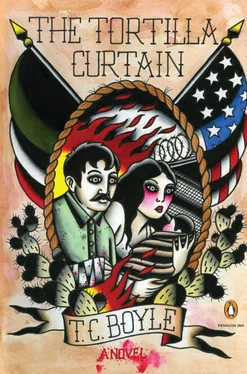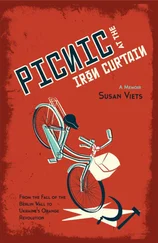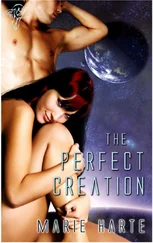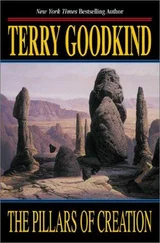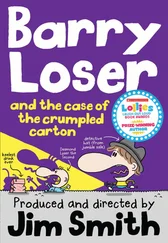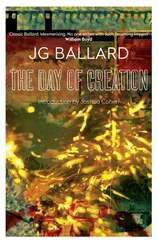T. Boyle - The Tortilla Curtain
Здесь есть возможность читать онлайн «T. Boyle - The Tortilla Curtain» весь текст электронной книги совершенно бесплатно (целиком полную версию без сокращений). В некоторых случаях можно слушать аудио, скачать через торрент в формате fb2 и присутствует краткое содержание. Год выпуска: 2011, Издательство: Penguin Books, Жанр: Современная проза, на английском языке. Описание произведения, (предисловие) а так же отзывы посетителей доступны на портале библиотеки ЛибКат.
- Название:The Tortilla Curtain
- Автор:
- Издательство:Penguin Books
- Жанр:
- Год:2011
- ISBN:нет данных
- Рейтинг книги:4 / 5. Голосов: 1
-
Избранное:Добавить в избранное
- Отзывы:
-
Ваша оценка:
- 80
- 1
- 2
- 3
- 4
- 5
The Tortilla Curtain: краткое содержание, описание и аннотация
Предлагаем к чтению аннотацию, описание, краткое содержание или предисловие (зависит от того, что написал сам автор книги «The Tortilla Curtain»). Если вы не нашли необходимую информацию о книге — напишите в комментариях, мы постараемся отыскать её.
The Tortilla Curtain — читать онлайн бесплатно полную книгу (весь текст) целиком
Ниже представлен текст книги, разбитый по страницам. Система сохранения места последней прочитанной страницы, позволяет с удобством читать онлайн бесплатно книгу «The Tortilla Curtain», без необходимости каждый раз заново искать на чём Вы остановились. Поставьте закладку, и сможете в любой момент перейти на страницу, на которой закончили чтение.
Интервал:
Закладка:
T. C. Boyle
The Tortilla Curtain
For Pablo and Theresa Campos
They ain't human. A human being wouldn't live like they do. A human being couldn't stand it to be so dirty and miserable.
— John Steinbeck, _The Grapes of Wrath__The author would like to thank Bill Sloniker, Tony Colby and James Kaufman for their assistance in gathering material for this book.
PART ONE.Arroyo Blanco
1
AFTERWARD, HE TRIED TO REDUCE IT TO ABSTRACT terms, an accident in a world of accidents, the collision of opposing forces-the bumper of his car and the frail scrambling hunched-over form of a dark little man with a wild look in his eye-but he wasn't very successful. This wasn't a statistic in an actuarial table tucked away in a drawer somewhere, this wasn't random and impersonal. It had happened to him, Delaney Mossbacher, of 32 Piñon Drive, Arroyo Blanco Estates, a liberal humanist with an unblemished driving record and a freshly waxed Japanese car with personalized plates, and it shook him to the core. Everywhere he turned he saw those red-flecked eyes, the rictus of the mouth, the rotten teeth and incongruous shock of gray in the heavy black brush of the mustache-they infested his dreams, cut through his waking hours like a window on another reality. He saw his victim in a book of stamps at the post office, reflected in the blameless glass panels of the gently closing twin doors at Jordan's elementary school, staring up at him from his omelette aux fines herbes at Emilio's in the shank of the evening.
The whole thing had happened so quickly. One minute he was winding his way up the canyon with a backseat full of newspapers, mayonnaise jars and Diet Coke cans for the recycler, thinking nothing, absolutely nothing, and the next thing he knew the car was skewed across the shoulder in a dissipating fan of dust. The man must have been crouching in the bushes like some feral thing, like a stray dog or bird-mauling cat, and at the last possible moment he'd flung himself across the road in a mad suicidal scramble. There was the astonished look, a flash of mustache, the collapsing mouth flung open in a mute cry, and then the brake, the impact, the marimba rattle of the stones beneath the car, and finally, the dust. The car had stalled, the air conditioner blowing full, the voice on the radio nattering on about import quotas and American jobs. The man was gone. Delaney opened his eyes and unclenched his teeth. The accident was over, already a moment in history.
To his shame, Delaney's first thought was for the car (was it marred, scratched, dented?), and then for his insurance rates (what was this going to do to his good-driver discount?), and finally, belatedly, for the victim. Who was he? Where had he gone? Was he all right? Was he hurt? Bleeding? Dying? Delaney's hands trembled on the wheel. He reached mechanically for the key and choked off the radio. It was then, still strapped in and rushing with adrenaline, that the reality of it began to hit him: he'd injured, possibly killed, another human being. It wasn't his fault, god knew-the man was obviously insane, demented, suicidal, no jury would convict him-but there it was, all the same. Heart pounding, he slipped out from under the seat belt, eased open the door and stepped tentatively onto the parched strip of naked stone and litter that constituted the shoulder of the road.
Immediately, before he could even catch his breath, he was brushed back by the tailwind of a string of cars racing bumper-to-bumper up the canyon like some snaking malignant train. He clung to the side of his car as the sun caught his head in a hammerlock and the un-air-conditioned heat rose from the pavement like a fist in the face, like a knockout punch. Two more cars shot by. He was dizzy. Sweating. He couldn't seem to control his hands. “I've had an accident,” he said to himself, repeating it over and over like a mantra, “I've had an accident.”
But where was the victim? Had he been flung clear, was that it? Delaney looked round him helplessly. Cars came down the canyon, burnished with light; cars went up it; cars turned into the lumberyard a hundred yards up on the right and into the side street beyond it, whining past him as if he didn't exist. One after another the faces of the drivers came at him, shadowy and indistinct behind the armor of their smoked-glass windshields. Not a head turned. No one stopped.
He walked round the front of the car first, scanning the mute unrevealing brush along the roadside-ceanothus, chamise, redshanks-for some sign of what had happened. Then he turned to the car. The plastic lens over the right headlight was cracked and the turn-signal housing had been knocked out of its track, but aside from that the car seemed undamaged. He threw an uneasy glance at the bushes, then worked his way along the passenger side to the rear, expecting the worst, the bleeding flesh and hammered bone, sure now that the man must have been trapped under the car. Stooping, palm flat, one knee in the dirt, he forced himself to look. Crescendo and then release: nothing there but dust and more dust.
The license plate-PILGRIM-caught the sun as he rose and clapped the grit from his hands, and he looked to the bushes yet again. “Hello!” he cried suddenly over the noise of the cars flashing by in either direction. “Is anybody there? Are you okay?”
He turned slowly round, once, twice, as if he'd forgotten something-a set of keys, his glasses, his wallet-then circled the car again. How could no one have seen what had happened? How could no one have stopped to help, bear witness, gape, jeer-anything? A hundred people must have passed by in the last five minutes and yet he might as well have been lost in the Great Painted Desert for all the good it did him. He looked off up the road to the bend by the lumberyard and the grocery beyond it, and saw the distant figure of a man climbing into a parked car, the hard hot light exploding round him. And then, fighting down the urge to run, to heave himself into the driver's seat and burn up the tires, to leave the idiot to his fate and deny everything-the date, the time, the place, his own identity and the sun in the sky-Detaney turned back to the bushes. “Hello?” he called again.
Nothing. The cars tore past. The sun beat at his shouldng A his shoers, his neck, the back of his head.
To the left, across the road, was a wall of rock; to the right, the canyon fell off to the rusty sandstone bed of Topanga Creek, hundreds of feet below. Delaney could see nothing but brush and treetops, but he knew now where his man was-down there, down in the scrub oak and manzanita. The high-resin-compound bumper of the Acura had launched that sad bundle of bone and gristle over the side of the canyon like a Ping-Pong ball shot out of a cannon, and what chance was there to survive that? He felt sick suddenly, his brain mobbed with images from the eyewitness news-shootings, stabbings, auto wrecks, the unending parade of victims served up afresh each day-and something hot and sour rose in his throat. Why him? Why did this have to happen to him?
He was about to give it up and jog to the lumberyard for help, for the police, an ambulance-they'd know what to do-when a glint of light caught his eye through the scrim of brush. He staggered forward blindly, stupidly, like a fish to a lure-he wanted to do the right thing, wanted to help, he did. But almost as quickly, he caught himself. This glint wasn't what he'd expected-no coin or crucifix, no belt buckle, key chain, medal or steel-toed boot wrenched from the victim's foot-just a shopping cart, pocked with rust and concealed in the bushes beside a rough trail that plunged steeply down the hillside, vanishing round a right-angle bend no more than twenty feet away.
Читать дальшеИнтервал:
Закладка:
Похожие книги на «The Tortilla Curtain»
Представляем Вашему вниманию похожие книги на «The Tortilla Curtain» списком для выбора. Мы отобрали схожую по названию и смыслу литературу в надежде предоставить читателям больше вариантов отыскать новые, интересные, ещё непрочитанные произведения.
Обсуждение, отзывы о книге «The Tortilla Curtain» и просто собственные мнения читателей. Оставьте ваши комментарии, напишите, что Вы думаете о произведении, его смысле или главных героях. Укажите что конкретно понравилось, а что нет, и почему Вы так считаете.
